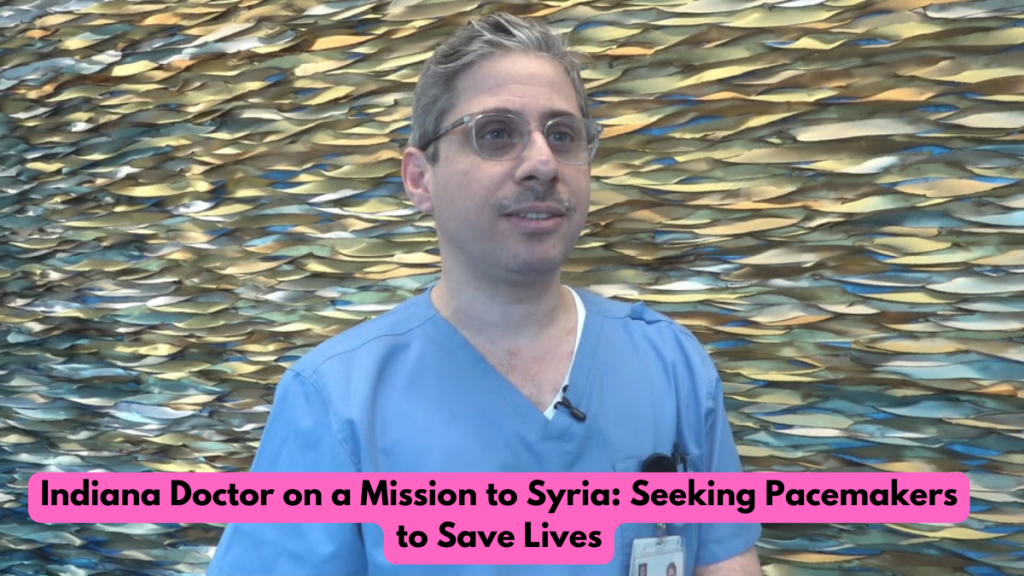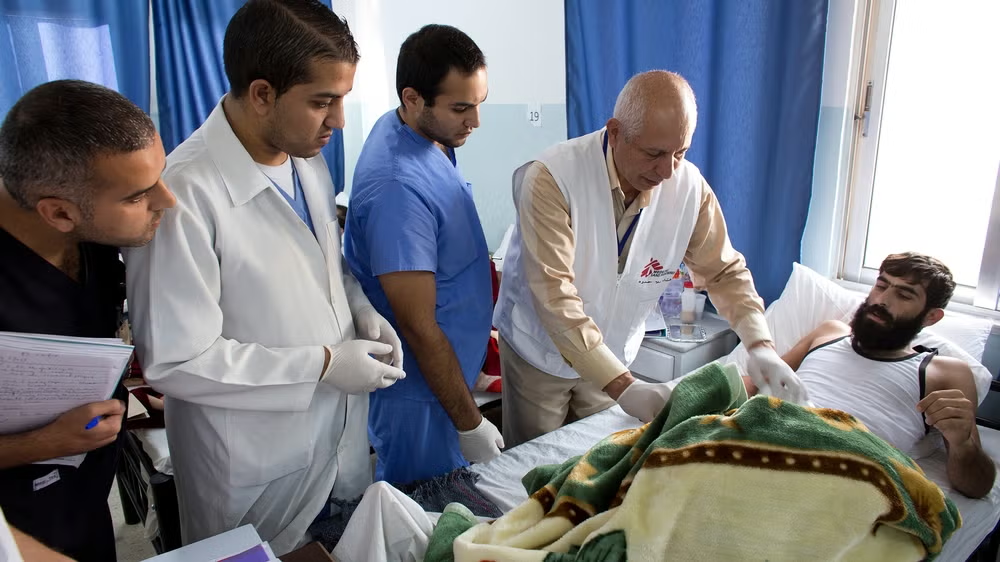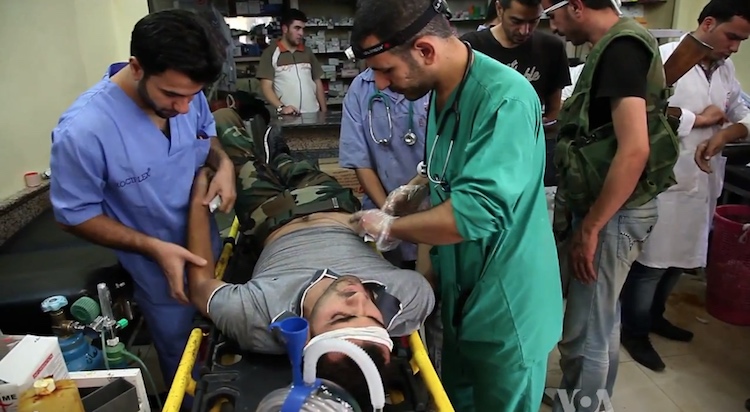
An Indiana doctor is on a humanitarian mission to Syria, seeking to provide pacemakers to patients in dire need of cardiac care. The mission, driven by the acute shortage of medical supplies in the war-torn region, underscores the ongoing challenges faced by healthcare providers in conflict zones.
A Life-Saving Initiative
Dr. [Doctor’s Name], a cardiologist based in Indiana, has long been involved in global medical outreach programs. With Syria’s healthcare infrastructure devastated by years of conflict, many patients suffering from heart conditions lack access to critical treatments, including pacemakers. Through collaborations with medical organizations and donors, Dr. [Last Name] aims to collect and deliver these life-saving devices to hospitals and clinics in Syria.
“This mission is about providing hope and a second chance at life to people who otherwise might not survive due to a lack of medical resources,” said Dr. [Last Name].
The Need for Pacemakers in Syria

Syria’s ongoing conflict has led to severe shortages in medical equipment, with hospitals struggling to meet the demands of an increasing number of patients. According to the World Health Organization (WHO) (www.who.int), nearly half of Syria’s healthcare facilities are either partially functional or completely out of service. This has made access to specialized treatments, such as cardiac care, extremely difficult for the local population.
Pacemakers, which regulate heart rhythms for patients with arrhythmias, are essential medical devices that can prevent sudden cardiac death. However, due to supply chain disruptions and economic challenges, acquiring these devices in Syria has become nearly impossible.
Mobilizing Support
Dr. [Last Name] is working alongside international aid organizations and non-profits to gather resources for the mission. One of the key partners in this effort is the American Heart Association (www.heart.org), which has been actively supporting cardiovascular health initiatives worldwide. Additionally, government agencies such as the U.S. Agency for International Development (USAID) (www.usaid.gov) have been instrumental in providing logistical support for medical aid missions.
In addition to collecting pacemakers, the initiative is also focused on training local Syrian doctors on proper implantation and post-operative care. “Providing the equipment is only part of the solution; we need to ensure that local medical professionals have the skills to use them effectively,” Dr. [Last Name] explained.
Challenges and Risks
Transporting medical supplies into Syria presents significant logistical and security challenges. The region remains unstable, with humanitarian aid often facing delays due to bureaucratic hurdles and security risks. Organizations like the United Nations Office for the Coordination of Humanitarian Affairs (OCHA) (www.unocha.org) have been advocating for improved access to medical aid in conflict-affected areas.
Another major obstacle is the high cost of pacemakers. While some medical device manufacturers have agreed to donate units, funding is still needed to cover shipping, training, and additional medical supplies. Donations and sponsorships from individuals and businesses will play a crucial role in the success of this mission.
A Call to Action

Dr. [Last Name] is urging the public to support the cause by donating funds or medical equipment. “Even a small contribution can make a huge difference in saving lives,” he emphasized. Those interested in contributing can do so through established humanitarian organizations such as Doctors Without Borders (www.msf.org) and the Syrian American Medical Society (www.sams-usa.net).
Despite the challenges, Dr. [Last Name] remains committed to his mission, hopeful that his efforts will bring much-needed relief to Syrian patients. “Medicine transcends borders,” he said. “Every life we save is a testament to the power of compassion and global solidarity.”
For more information on how to support medical aid efforts in Syria, visit www.redcross.org or www.unicef.org.



